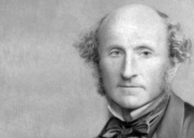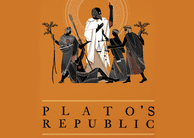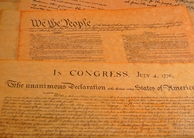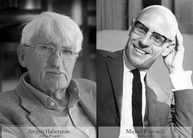|
Philosophy
Page 4/6 | Showing results 46 - 60 of 85
2016, Vol. 8 No. 02
Within the works of Spinoza, as well as those of Descartes, issues concerning the nature of free-will come to the fore. With this essay, I will first explain Spinoza’s and Descartes’s notions regarding freedom of the will, its existence... Read Article »
2016, Vol. 8 No. 01
Within Lao Tzu’s Tao-Teh-Ching and Machiavelli’s The Prince, there are similar notions concerning how a ruler should maintain order and how he/she can be an effective leader. According to the former, it is best if people are blind to... Read Article »
2016, Vol. 8 No. 01
Hans Jonas main objective in his book The phenomenon of life is to offer an interpretation of the phenomenon of Being that is neither conditioned to dualism nor to a partial conception of being, such as those developed by idealism and by materialism... Read Article »
2015, Vol. 12 No. 1
There has been a modern revival of interest in virtue ethics as a plausible moral theory. There has been dissatisfaction with the way many modern moral theories emphasize moral obligation and law at the expense, some argue, of the individual (Slote... Read Article »
2015, Vol. 7 No. 11
Ever since its posthumous publication, John Stuart Mill’s Autobiography has elicited reactions of primarily disappointment and confusion. Thomas Carlyle famously deemed the book the “autobiography of a steam-engine” (quoted in... Read Article »
2015, Vol. 7 No. 09
Dr. Timothy Quill made headlines in the fields of patient rights and euthanasia when he published “Death and Dignity” in the New England Journal of Medicine (1991). In the articlce, Quill described his long-term patient, Diane, who had... Read Article »
2015, Vol. 7 No. 09
One of the greatest ironies of Plato's Republic is that, although he condemns the poets and exiles them from his idyllic city, the Republic is perhaps one of the greatest literary works of all time, and a poem in its own right. Although written... Read Article »
2015, Vol. 7 No. 08
One Victorian writer whose similarities to Nietzsche continue to receive sustained attention is Oscar Wilde—even though, as is the case with most of Nietzsche’s English-speaking contemporaries, they probably never read one another (Allen... Read Article »
2015, Vol. 7 No. 05
Their protest challenged the paradigm of power as it existed at the time, specifically by revealing the limitations of the state's ability to exercise its will even in a situation where the state wielded seemingly absolute authority.[1] Power, as... Read Article »
2015, Vol. 7 No. 04
The assertion that unconstrained power brings with it inevitable corruption has occupied theorists since the first considerations of authority. That the nature of man in unconstrained assemblage will lead to a “tyrannical abuse of power&rdquo... Read Article »
2015, Vol. 7 No. 02
Our contemporary global public sphere is made up of a tiny proportion of the world’s population. Affluent, exclusive, and concerned only with perpetuating its own economic advancement, this contemporary global public sphere is an anachronism... Read Article »
2014, Vol. 4 No. 1
What we see is partially dependent on what we are shown. As communicators, we have a duty to inform and educate and lead. As environmental communicators we have the privilege of explaining how the various parts of our natural world work, individually... Read Article »
2014, Vol. 6 No. 11
Expression through artwork, representation, and interpretation are significant aspects of our human experience and key elements of the discipline of Aesthetics. Rarely do these concepts integrate a social science perspective into their approach.... Read Article »
2014, Vol. 6 No. 09
This paper contrasts the philosophy of Michel Foucault and Jürgen Habermas to determine whether there is any point of substantial convergence between the two.[1] To do so, the essay first argues that the projects engaged in by each philosopher... Read Article »
2014, Vol. 6 No. 08
We often acquire knowledge about the world through the detailed process of description. We understand even more by describing and explaining to others—people often report that they only really understand a topic once they have described it... Read Article »
Expedited Article Review
Submit an article and get a decision fast.
If you need a fast decision, INQUIRIES Journal offers expedited processing of your submission for a small fee. Depending on the expedited review option you choose, you can receive a decision in as few as 5-days.
In addition to a shorter review period, the fee supports the journal's continued operation and open-access publishing model. Standard submissions are always free. Submit Now » - Submit an Article to Inquiries Journal -
|















